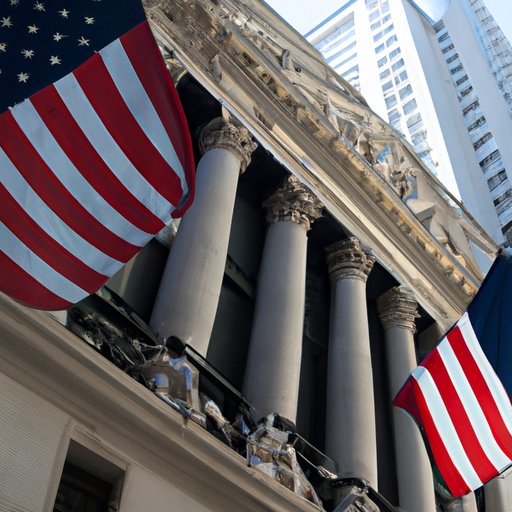Understanding Wall Street: The Financial Hub of the World
Wall Street is a term that carries immense significance for anyone interested in finance. It is a symbol of America’s economic might, and its reach extends far beyond the United States. For many, Wall Street represents the pinnacle of wealth and success, and it is a place that often evokes strong opinions and emotions. But what exactly is Wall Street, and why is it so important? In this article, we will explore the history and significance of Wall Street, as well as its current role and future prospects.
The History of Wall Street
The origins of Wall Street can be traced back to the 17th century, when the Dutch established a trading post called New Amsterdam in what is now Lower Manhattan. This area became a hub of commerce and saw the growth of businesses related to maritime trade. Over time, these trading activities expanded to include goods like stocks and bonds, which led to the growth of the modern stock market.
The New York Stock Exchange (NYSE) was founded in 1792, and it quickly became the center of American finance. Over time, Wall Street became synonymous with the stock market, as more and more businesses began to trade their stocks there. The growth of the modern financial industry on Wall Street was also facilitated by important legislative and regulatory changes, including the passage of important laws such as the Glass-Steagall Act and the Securities Act of 1933.
Wall Street has also weathered many significant events and crises throughout history, including the world wars and the Great Depression. These events have shaped the financial industry and have played a significant role in the development of Wall Street.
Understanding the Role of Wall Street
Wall Street serves many important functions, but its primary role is to act as a financial hub. It is where companies can go to raise capital by issuing stocks and bonds, and it is also where investors go to buy and sell these assets. Additionally, Wall Street is where international markets intersect, as many foreign companies are listed on American exchanges. All of these activities help to make Wall Street a critical part of the global financial system.
The New York Stock Exchange (NYSE) is one of the most important components of Wall Street. This is where the largest publicly traded companies in the world are listed, and it is where many of the trades that occur on Wall Street take place. The NYSE is also a symbol of American economic power, and it helps to shape global financial trends.
Trading stocks on Wall Street is a complex process that involves a number of different players. Traders, brokers, and other financial professionals work together to facilitate trades and ensure that the market operates smoothly. Despite the challenges involved, trading stocks on Wall Street remains a lucrative and exciting career path for many people.
A Day in the Life of a Wall Street Trader
Working as a trader on Wall Street can be an exciting and fast-paced career. These professionals typically start their day early, monitoring the news and market trends to gain an edge in their trades. Throughout the day, traders will make decisions about buying and selling stocks, and they will work with brokers to execute these trades. While the job can be extremely lucrative, it also comes with many challenges, including long hours, high stress, and significant risk.
Key Players on Wall Street
Many firms and individuals have made a significant impact on Wall Street over the years. Some of the most influential players include major investment banks like Goldman Sachs and JPMorgan Chase, as well as powerful hedge funds like Bridgewater Associates and Citadel. These firms have a significant influence on the global financial system, and they are often involved in major economic events and trends.
The Pros and Cons of Wall Street
There are many advantages to having a financial hub like Wall Street. It provides a centralized location for financial transactions and can help to promote investment and economic growth. At the same time, there are also some disadvantages to the concentration of wealth and power in Wall Street. These include concerns about income inequality, as well as a lack of diversity in the financial industry.
The Future of Wall Street
Technology, globalization, and other forces are likely to shape the future of Wall Street. Many experts predict that the financial industry will continue to grow and evolve, with new technologies and innovative financial products playing a significant role. At the same time, there are concerns about the impact of automation and other changes on jobs and traditional business models.
Conclusion
Wall Street is more than just a street in New York City. It is a symbol of American economic power and a critical component of the global financial system. From its early beginnings to its current role as a hub of finance, Wall Street has played a significant role in shaping the modern world. While there are challenges and concerns associated with this concentration of wealth and power, the future of Wall Street is likely to be shaped by new innovations and exciting opportunities.
